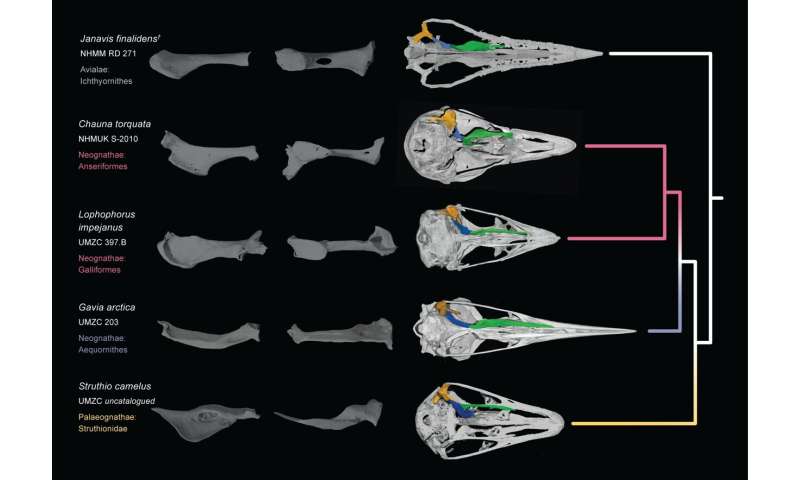Best of Last Week—Overturning bird evolutionary theory, dangers of AI apps, mapping multiple diseases in one person

A pair of paleontologists, one with the University of Cincinnati, the other the University of Colorado Boulder, rebutted recent reports that mammoths went extinct later than thought. Joshua Miller and Carl Simpson pointed out that environmental DNA cannot be used to establish timelines. Also, a combined team from the University of Cambridge and the Natuurhistorisch Museum Maastricht claimed that recently discovered fossil evidence overturns more than a century of knowledge about the origin of modern birds. They found evidence of a mobile beak evolving before a mass extinction 66 million years ago. And a team of researchers from Seoul National University, the University of Alberta and the Mongolian Academy of Sciences discovered that a fossil found in Mongolia is the first known species of streamlined, non-avian theropod dinosaur to walk on two legs.
In technology news, a team at Cornell University created a computer program that can read drawings and handwriting, and convert it to computer code. Called Notate, the interface is pen-based and relies on a deep learning module. Also, a team at ETH Zurich developed an architecture called TEEtime that allows users to choose resources on their smartphone to dedicate to legacy operating systems and which they wish to keep for their own proprietary software and data. And a team at Technische Universität Dresden created perovskite-based phase heterojunction solar cells, which should make photovoltaic devices more efficient. Also, Twitter users began posting warnings about the possible dangers of AI applications and devices that use them after California startup OpenAI posted a video of a chatbot called ChatGPT and its hyper-sophisticated capabilities.
In other news, a combined team from the University of Birmingham in the U.K. and Beijing Normal University in China found that short term memory problems can be improved with laser therapy. The noninvasive therapy was found to improve working memory in up to 25% of people tested. Also, a team at Instituto de Astrofísica de Canarias, found that the James Webb telescope produced an unparalleled view of a ghostly light in several galaxy clusters. And finally, a team with members affiliated with multiple institutions in the U.K. identified patterns in common health conditions occurring together in the same individuals and used them to create mappings between diseases.
© 2022 Science X Network